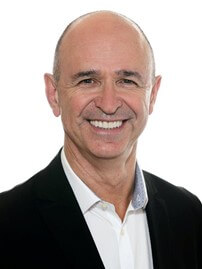
As we emerge from the pandemic we can reflect on the lessons learned and we can use them to build a better future for health and healthcare, writes Dr. Peter Lachman.
The HSE did not get everything right, which is to be expected when dealing with the complex threat of the virus and then the added difficulties caused by the cyber-attack. Very few health services managed a perfect response. Even those with early success, like Taiwan and Australia have had to deal with the unexpected re-emergence of waves of infection.
It is easy to dwell on what did not work, but perhaps we should learn from the lessons of Safety II and from the Learning for Excellence concept. There is much that we can be proud of and that we can use for the benefit of all in the future. Hollnagel, in an earlier paper entitled Tale of Two Safeties, encourages us to look at what works well rather than what does not. I encourage this approach as we move to the recovery phase post-pandemic, with the need to deal with the collateral damage caused by the pandemic. Waiting times will have increased and the routine care for common conditions, as well as for serious ones has been delayed. We cannot simply continue to work in the same way as in the past, hoping that it will reduce the backlog, as it won’t. We need to think differently – just as we have done during the pandemic.
We need to think differently – just as we have done during the pandemic.
Two examples to illustrate how learning from success can change the way we deliver care:
The first is from the vaccination programme which offers lessons on how to manage flow. The method can be applied to the challenge of dealing with the backlog of people that need care. As a consumer I was impressed by the organisation of the vaccination programme, as it indicated that there was understanding of the need to balance the demand for vaccines and the supply of the service. One could argue that the demand was predictable, as we knew how many people there were in each age group, so then we arranged the supply accordingly (once the vaccines supply had been resolved). As it is all elective, the vaccination programme could be run more easily than a service where demand is unpredictable.
The vaccination service had been offered every day and the flow managed to allow the service to run smoothly. This required a detailed analysis of the process and the use of digital solutions to ensure it worked well. I also noted changes in the process from my first to my second vaccination so there was continual learning on how best to deliver the service. This can be applied to how we deal with surgical demand going forward and to manage the growing backlog of surgical patients and operations that are required. We can apply variability theory and smooth the flow so that there are no peaks and troughs in the delivery of the service. Most surgery is elective, so therefore can be planned in a more logical way. If we take this approach there will be benefits all round, as the impact will be wider than the area of surgery. Also, there will be financial gains, as demonstrated in Canada.
The second lesson is from how consultations moved from in-person only to remote and virtual consultation using telemedicine. This was achieved by necessity rather than by desire, and we can now look at what worked well and what could be done better. Rather than return to the old way which had inbuilt inefficiencies, we need to build a hybrid system of consultation. The lessons of using telemedicine during the pandemic can be used to develop a new way of working using remote consultation in a planned way. Greenhalgh’s recent paper offers a way forward on how to plan remote consultation safely and it can be the template going forward. There are many issues to address to ensure it is equitable, but these can be overcome in the development of a modern service.
It is easy to return to the norm that we had before and very tempting to do so. All that will demonstrate is a lost opportunity to adapt and move forward to an improved service. Leaders, managers and clinicians need to be brave and adopt new ways of working.
Dr Peter Lachman is Lead, Faculty Quality Improvement Programme Royal College of Physicians of Ireland.

